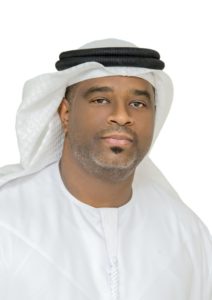Utility company’s CEO discusses its expanding portfolio of plants and regional growth strategy

Bader Al Lamki
ABU DHABI, UAE, 8 January 2020: An efficient district cooling solution has an immediate and noticeable impact on climate change discussions, said Bader Al Lamki, Tabreed’s Chief Executive Officer, as he welcomed visitors to a media briefing at the W Hotel on Yas Island in Abu Dhabi on January 7. The event, Al Lamki said, aims to showcase the progress Tabreed has made in the field of district cooling, in addition to highlighting the utility company’s commitment to leverage key learnings it has gained from 22 years in the industry. He pointed out that with 78 plants under its portfolio, 65 of which are in the UAE, Tabreed is currently delivering 1.16 million refrigerated tonnes (RT) to diverse clients across the region. “The sizeable portfolio puts us in the top five, globally, as a company with a wealth of knowledge in developing projects, improving design over the years and executing projects on time, on budget and with the highest safety record, while operating these facilities for our clients,” he said.
The media tour was complemented by a site visit of the company’s Yas Island plant, which Al Lamki highlighted, is responsible for the cooling of surrounding hotels, theme parks and other facilities. Al Lamki also emphasised Tabreed’s commitment to ensuring reliability in operations and maintenance by highlighting critical infrastructure the company has been supplying cooling to over the years, such as the Dubai Metro station, Dubai Parks and Resorts and the Cleveland Clinic, in Abu Dhabi. These projects, he said, showcase the company’s flexibility in being able to customise solutions for different types of clients.
Outside the UAE, Al Lamki said, the company has seen significant growth in surrounding GCC region countries. In Oman, he said, the company is supplying to a number of malls, whereas its plant in Bahrain is one of the most innovative in its portfolio by virtue of using seawater.
Al Lamki added that the company is seeing strong growth opportunities in Saudi Arabia, reinforced by the company’s decision to increase its stake in Saudi Aramco to 28% in recent months. Commenting on market projections stating Saudi Arabia’s district cooling market is set to exceed one billion in the next five years, Al Lamki said, “As you know, Saudi Arabia, with Vision 2030, has an ambitious programme of building new cities – for example, Neon and the Red Sea project, along with expansions in the airport and new universities being built. There are huge infrastructure projects increasingly being announced in Saudi Arabia, and I don’t think there is a shortage of opportunities in the country. What’s left now is for those projects to evolve to increase the pace of development and for us to sharpen our pencils and provide the value-added solutions, so we can be the partner of choice.”
In addition to growing its presence in the GCC region, Al Lamki said, Tabreed is looking to advance its presence in countries with dense populations, such as India, which he said is a destination high on the company’s growth agenda, and Egypt, following increasing development of new capital cities. “As a trend, clients’ awareness on the importance of district cooling and the value it brings from not only a sustainability point of view but also in terms of lifecycle cost and economics, is increasing more and more,” he said. “Tabreed is in the best place to respond, backed by the wealth of data, operation and technical knowledge, as well as strong financial standing.”
Highlighting District Cooling’s contribution to international discussions relating to climate change mitigation, Al Lamki said Tabreed is actively participating in the Cool Coalition, launched in September 2019 during the United Nations Climate Action Summit, adding that such an initiative showcases growing appreciation of cooling, which is considered one of the “blind spots” in the energy efficiency dialogue. “The globe is getting warmer, population is increasing and as the increase in infrastructure comes into place, the demand for cooling is increasing,” he said. “Unless we step in with efficient and reliable solutions – solutions that mitigate carbon emission, and reduce the need for additional power plant and additional electricity demand, the problem will be compounded.”
The February issue of Climate Control Middle East magazine will feature an article that will take a closer look at the company’s operation and maintenance philosophy.
Copyright © 2006-2025 - CPI Industry. All rights reserved.